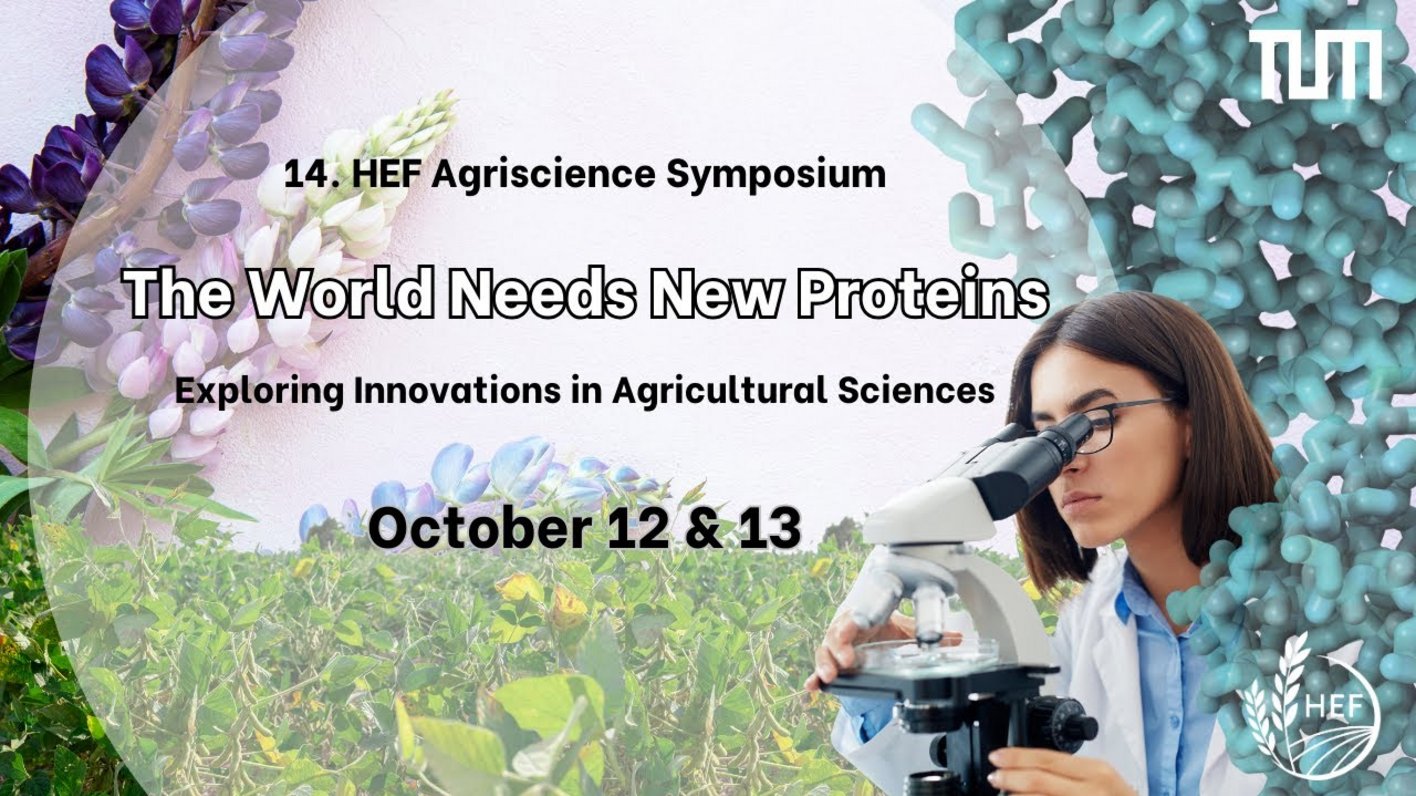HEF AgriScience Symposium
Every year, the Hans Eisenmann Forum's agricultural symposium is dedicated to a selected topic of agricultural research
Date: October 12-13, 2023, Venue: Weihenstephan, Germany
Register now
You are cordially invited to the HEF Agricultural Science Symposium: "The World Needs New Proteins"! We are delighted to welcome you on October 12th and 13th, 2023, in Weihenstephan, Germany.
The symposium provides a unique platform for experts, researchers, and professionals in the field of agricultural science to explore the latest developments and innovations in food production. We will delve into the challenges and opportunities of the ever-changing global food landscape.
Meet leading experts who will share their knowledge and experiences on various aspects of protein research. Learn about alternative protein sources, sustainable agricultural practices, innovative technologies, and their impact on global food security.
This year, the HEF AgriScience Symposium also hosts the TFOODS conference together with TUMCREATE. TUMcreate is a research platform affiliated with the Technical University of Munich's Singapore Campus. Its flagship project, 'Proteins4Singapore,' focuses on developing alternative non-animal protein sources using innovative processing and extraction methods and reverse food engineering. The team consists of experts from various scientific backgrounds, working towards creating plant-based products with improved texture, flavor, and nutritional profiles. They will conduct a life cycle assessment to assess the model's viability and scalability for commercialization.
The conference includes a product fair and a shark tank event for groundbreaking food ideas. Don't miss this epic global gathering exploring the future of food!
Join this significant symposium to expand your knowledge, engage with like-minded individuals, and contribute to creating a sustainable and secure food supply for the world.
Save the dates, October 12th and 13th, 2023, and experience the HEF Agricultural Science Symposium in Weihenstephan.
Participation is free of charge.
Don't miss this unique opportunity to shape the future of agricultural science!
How to get to the event
Location: Central lecture hall building (ZHG), Maximus-von-Imhof-Forum 6, 85354 Freising-Weihenstephan
Lecture Hall 16
By Public Transport
From Freising Train Station: Bus 638 oder 639 to Weihenstephan, Freising
From Munich Airport: Bus 635 to Freising Train Station, then bus 638 or 639 to Weihenstephan, Freising
From Munich Main Station: train S1 oder regional train to Freising Train Station, then bus 638 or 639 to Weihenstephan, Freising
By Car
From the freeway A9 exit "Allershausen" or from the A92 exit "Freising Mitte" and follow the signs to Freising. In Freising follow the signs to Weihenstephan/Universität.
Parking spaces are available in the Liesel-Beckmann-Straße.


